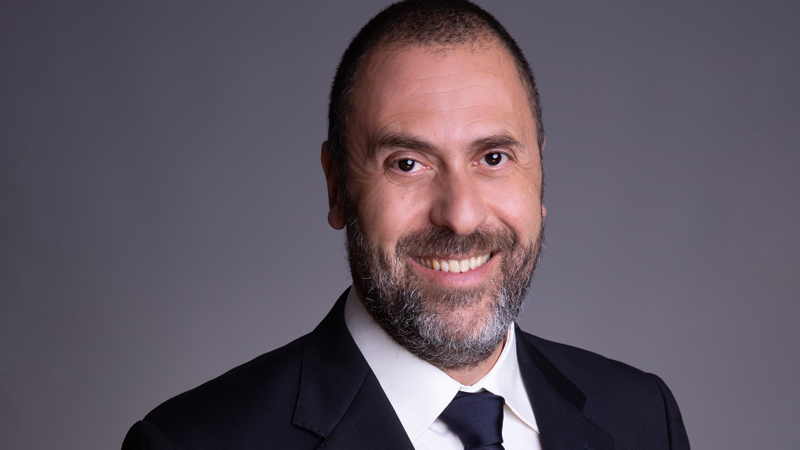For David Mauro (GEMBA '23), deputy chief of the spaceflight division at NASA Ames Research Center, returning to school for an MBA was necessary to keep up with the booming demands in the space industry.

David Mauro, GEMBA '23
“We’re going through a renaissance in the space economy, and I knew I had to change with it,” says Mauro, a 12-year industry veteran who began his current role in 2021. Just a month into the job, he began his MBA with the Rotman-SDA Bocconi Global Executive MBA (GEMBA) program to grasp the business fundamentals that were needed more than ever in his career.
“There’s a need for people who know both the technical side and the business side of space. I wanted to learn more about the business side, so I joined the GEMBA program to equip myself with that knowledge,” he says.
Mauro has what many space enthusiasts would consider a dream job: he works on making space missions come to life with a team of scientists, system engineers and project managers. From missions beyond our atmosphere to measuring the wind on Mars, he works on complex projects with high stakes and budgets.
There have been huge investments into space in recent years, including Elon Musk’s ambitious SpaceX; Richard Branson's Virgin Galactic, the world’s first public commercial spaceflight company; and NASA’s cutting-edge James Webb telescope. Hundreds of smaller space tech startups are also entering the arena, like Milan-based D-Orbit, the first in-space logistics company to work on mitigating debris in space.
“Many startups and private sector companies continue to invest in space, and what’s now a US$400 billion industry is estimated to soar to about US$1 trillion by 2040,” says Mauro. At the Rotman School of Management, the Creative Destruction Lab has a bustling space stream to coach startup companies pursuing commercial opportunities related to space. Mentors in CDL Space include field experts like Canadian astronaut Chris Hadfield, and academic experts like April Franco, a professor of economic analysis and policy at the University of Toronto-Scarborough and Rotman.
It’s this rapid transformation that puts leaders like Mauro in a position to be more strategic than ever — from rethinking internal strategies, to carefully allocating large budgets and navigating potential partnerships with startups.
“My experience in the GEMBA program is changing the way I think about problems,” says Mauro. “I started looking at things in new and creative ways when thinking about NASA Ames Research Center’s internal strategy or how we can improve certain processes,” he adds, noting how relevant the strategy implementation course will be next time his division undergoes an internal shift.
“We’re going through a renaissance in the space economy, and I knew I had to change with it.”
David Mauro
Global Executive MBA ’23
Deputy Chief, Spaceflight Division, NASA Ames Research Center
Over the course of the 18-month program, learners from around the world meet in Toronto, Milan, Mumbai, Copenhagen, San Francisco, Shanghai and San Paulo for immersive modules that cover the business fundamentals for leaders across industries.
Most recently, Mauro’s class returned from San Francisco, where they met with tech industry leaders to get a deeper look at mergers and acquisitions strategies. In other cities, participants delve into topics that range from managing innovation and corporate strategy to ethics and sustainability.
“It was like learning to read again,” Mauro says. “I’m building so many bridges in my understanding of how everything connects, and I’m bringing these reflections into my work.”
While the fun part of his new job is dealing with space missions, Mauro says managing different types of people is what makes up the bulk of his role.
“Machines are predictable, but humans are human – they have different skill sets, personalities and needs,” he says, noting the courses he has taken on leadership, leveraging diverse teams and strategic change have been instrumental to his confidence as a leader.
And with the barriers slowly dissolving for non-astronauts to take part in spaceflight, Mauro says he's often taken aback by the huge shifts in the space landscape from just a decade ago.
“Before, space flight required intensive and very technical training and was largely only available to professional astronauts, but now it’s a matter of how much money you have,” he says. “It’s mind-blowing. It makes you realize how much the space industry will continue to transform as the private sector looks to make a return on their investments.”
Through his studies, Mauro says he hopes to set an example for his young kids, who are five and seven.
“I want to show them that you never have to stop learning,” he says. “I’m 47 and it doesn’t matter if this is your third or fourth degree – we’re never done.”
Written by Jessie Park | More Student Stories »